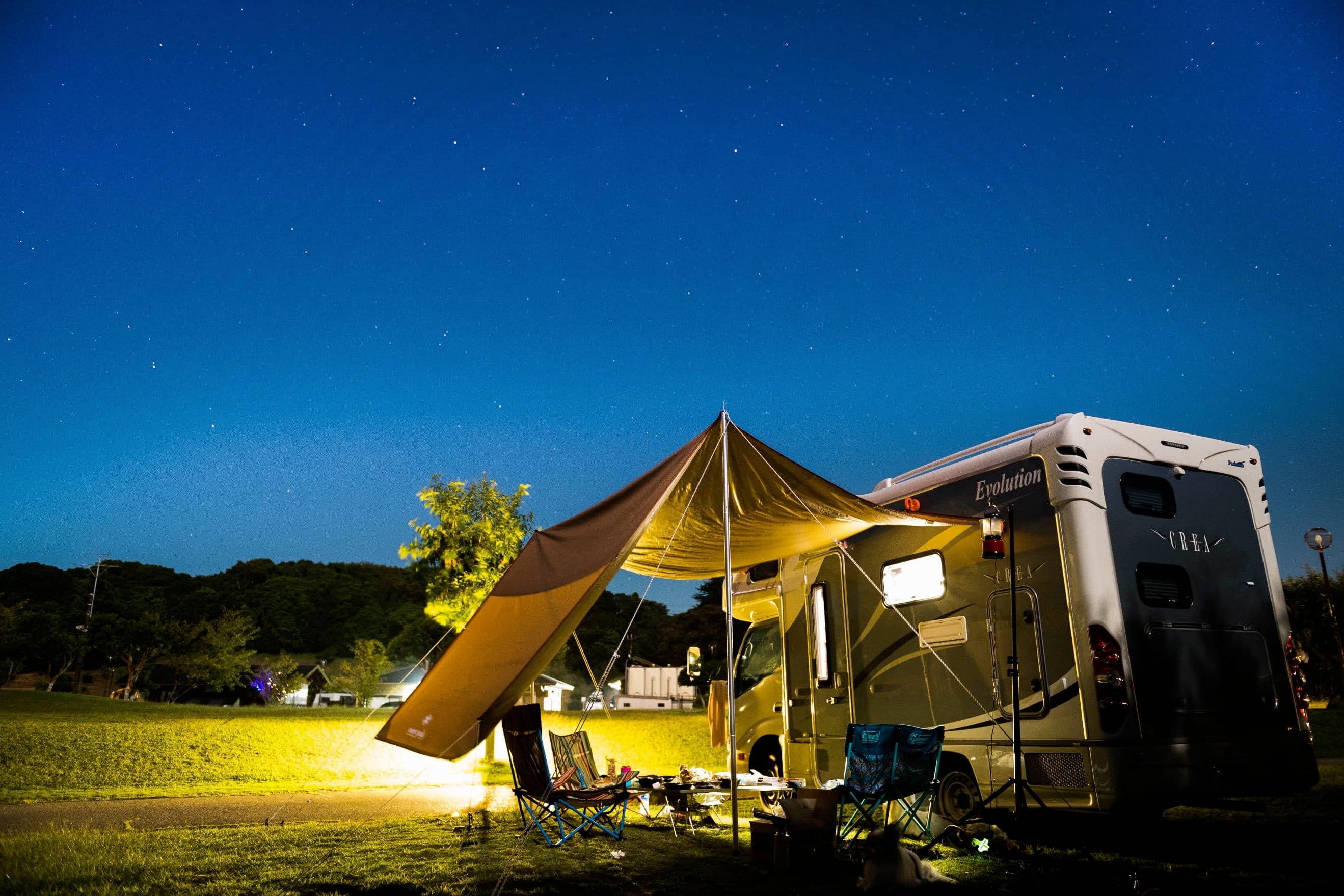Blog
7 Popular RV Types & Their Electrical Systems Explained
2025-05-12 | Calvin

There are currently seven popular RV types, which fall under two major categories: Motorhomes and Trailers.
Motorhomes
Motorhomes are fully integrated RVs where the driving cab and the living area are connected. These include:
Class A Motorhome
Class A is the largest and most luxurious RV type, often resembling a bus. Sizes range from 26 to 45 feet and usually include:
- Full kitchen
- Separate bedroom
- Full bathroom with shower
- Multiple slide-outs for expanded living space
Electrical System:
- 48V DC system
- 120V AC system
- Up to 50A current capacity
Pros:
- Ultimate comfort and home-like amenities
- Ideal for long-term RV living
Cons:
- Expensive to purchase and maintain
- Difficult to drive and park due to its size
Class B Motorhome
Class B RVs look like large vans and are sometimes converted directly from standard cargo vans. They are compact and easy to maneuver, perfect for urban or mountainous travel.
Electrical System:
- 12V or 24V DC system
- 120V AC system
- 30–50A maximum current
Pros:
- Excellent mobility and accessibility
- Can fit in regular parking spaces
Cons:
- Limited space and fewer amenities
Class C Motorhome
Class C sits between Class A and Class B in terms of size (typically around 30 feet). It balances comfort, functionality, and affordability.
Electrical System:
- 12V or 24V DC system
- 120V AC system
- 30–50A maximum current
Pros:
- Good balance of space, features, and price
- Ideal for families and occasional travelers
Cons:
- May lack the spaciousness of Class A
- Still needs careful handling due to size
Trailers
Trailers, on the other hand, must be towed by another vehicle such as a pickup truck. These include:
- 5th Wheel
- Toy Hauler
- Travel Trailer
- Pop-up Camper
5th Wheel Trailer
Popular among pickup truck owners, the 5th Wheel offers luxury and space similar to a Class A RV but at a lower price. It connects via a hitch mounted in the truck bed.
Electrical System:
- 12V or 24V DC system
- 120V AC system
- 30–50A maximum current
Pros:
- Spacious interior
- Detachable when not in use
- Legally allows passengers during towing (in many states)
Cons:
- Requires a large pickup truck
- Can be difficult to maneuver
Toy Hauler
A Toy Hauler is a trailer designed to transport recreational gear like ATVs or motorcycles. It features a fold-down rear ramp and can double as a patio.
Electrical System:
- 12V or 24V DC system
- 120V AC system
- 30–50A maximum current
Pros:
- Great for outdoor enthusiasts
- Versatile use of space
Travel Trailer
Travel Trailers are the most common type of RV and vary widely in size, features, and price. They are towed by a bumper hitch and come in a broad range of configurations.
Electrical System:
- 12V or 24V DC system
- 120V AC system
- 30–50A maximum current
Pros:
- Broad price and size range
- Customizable to suit different budgets
Pop-up Camper
This is the most compact RV type. It folds down for easy storage and towing and pops up at campsites. It's perfect for occasional campers.
Electrical System:
- 12V DC system
- 120V AC system
- 15A maximum current
Pros:
- Lightweight and easy to tow
- Affordable and compact
RV Battery & Electrical System Upgrades
RVs come with various electrical systems ranging from 12V to 48V. Most standard RVs use lead-acid AGM batteries, but many premium RVs now use LiFePO4 batteries.
Benefits of LFP Batteries:
- Longer lifespan: Over 10 years and 4,000+ cycles
- Greater depth of discharge (DOD): Up to 80% vs. 50% in AGM
- Faster charging & discharging
- Safe and maintenance-free: No risk of explosion, even under extreme conditions
Battery Charging Options:
RVs support multiple charging methods:
- Shore power: Plugging into an external power source.
- Solar power: Eco-friendly and ideal for off-grid use.
- Generator: Provides power during travel or in remote areas.
- Alternator: Charges batteries while driving.
Final Thoughts
Choosing the right RV type and electrical system depends on your lifestyle, travel frequency, and budget. Whether you want a luxurious home-on-wheels or a simple weekend camper, understanding the power systems and RV capabilities will help you make a smarter choice—and enjoy your adventures even more.
- Next:Everything You Need to Know About the 4680 Battery
- Previous:Tesla Battery Types: A Simple Guide for Model S, 3, X, and Y
Contact Details
Lithium LiFePO4 Batteries and Lithium LiFePO4 Cells Supplier - LiFePO4 Battery Shop
Contact Person: Miss. Elena Wang
WhatsApp : +8615263269227
Skype : +8615263269227
WeChat :15263269227
Email : info@lifepo4batteryshop.com
All Products
- A123 Battery (5)
- Sinopoly Battery (7)
- GBS Battery (16)
- CALB Battery (22)
- Cylindrical Cell (3)
- Energy Storage System (0)
- Battery Management System (2)
- Sodium ion Battery Cell (3)
- Lithium Titanate Battery (16)
- Ternary Lithium Battery Cell (11)
- REPT Battery (8)
- BYD Battery (2)
- CATL Battery (14)
- Thunder Sky Winston Battery (21)
- EVE Battery (29)
- LiFePO4 Battery Cell (4)
Certification
Customer Reviews
- I have fond memories of our meeting in Shanghai with LiFePO4 Battery Shop Elena. Your company left a strong impression on me with its impressive growth and professionalism. We both value straightforwardness and honesty, which I believe are the most important qualities in any partnership. I am confident that we can build a successful collaboration based on these shared values. —— Robert from USA
- I've been working with LiFePO4 Battery Shop for years, and their reliability is unmatched. While other suppliers frequently change sales teams, LiFePO4 Battery Shop has consistently provided exceptional service with a stable team. Their commitment to quality and customer support truly sets them apart. —— Henry from Australia



